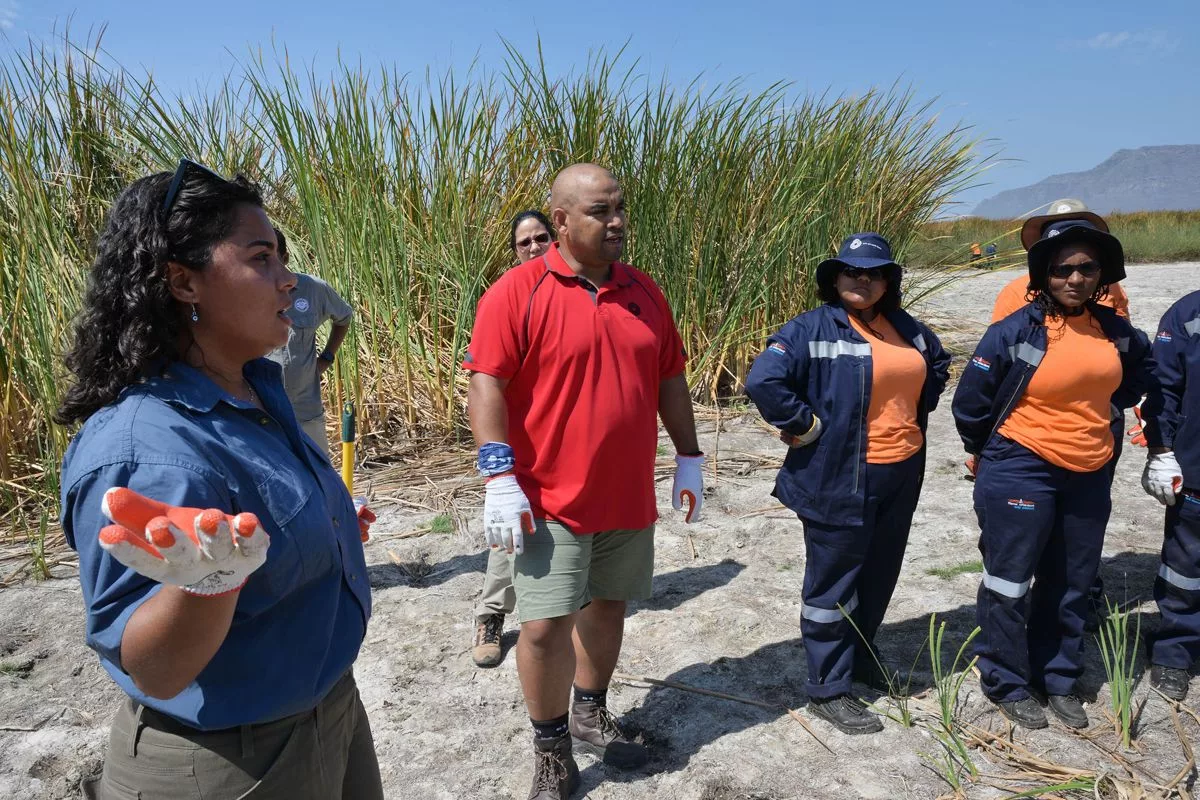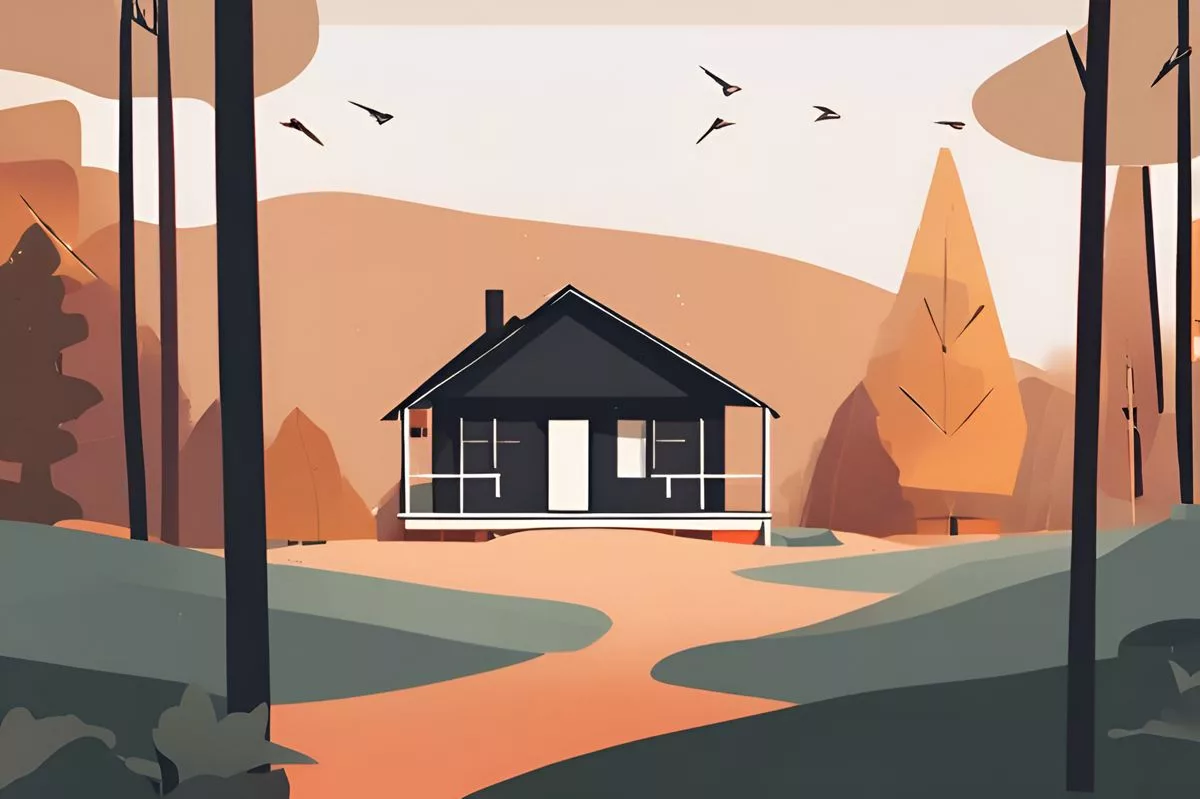Cape Town celebrated World Wetlands Day at Rondevlei, highlighting the importance of wetlands in nature conservation efforts. Wetlands are crucial habitats for diverse plant and animal species and play a vital role in water quality enhancement and flood reduction. The River Warden Programme actively fosters wetland health by eradicating invasive plants, managing litter, and enabling waterway rehabilitation initiatives. The occasion served as a call to action, demonstrating the power of collective conservation efforts and the significance of safeguarding and nurturing our wetlands.
River Warden Programme actively fosters the health of South African wetlands. Besides eradicating invasive plants and managing litter, the programme enables waterway rehabilitation initiatives. Wetlands function as natural absorbers, enhance water quality, and shelter a diverse range of species. World Wetlands Day in Rondevlei was a call to action, demonstrating the power of collective conservation efforts.
On the 2nd of February, 2024, Cape Town came alive, commemorating World Wetlands Day. This colourful celebration had at its centre, the Rondevlei sector of the False Bay Nature Reserve. The City’s Deputy Mayor, Alderman Eddie Andrews, led the charge, and he was flanked by a passionate group of environmental enthusiasts. The day was filled with insightful discussions and interactive conservation tasks, all spotlighting the irreplaceable role that wetlands play.
The Rondevlei wetland is a sanctuary within the bustling city, providing a crucial habitat for diverse species of plants and animals. However, this haven, like many other South African wetlands, is under attack. The statistics are glaring: of the 791 identified wetland ecosystem variants in the country, 48% are on the brink of extinction, 12% are endangered, 5% are vulnerable, with a mere 35% categorised as least threatened. Wetlands, as the figures show, are South Africa’s most at-risk ecosystems.
However, World Wetlands Day revealed a different perspective at Rondevlei. The occasion was a testament to the true spirit of environmental guardianship. Alongside the River Wardens of the city, and various members of the Expanded Public Works Programme (EPWP), Andrews embarked on a mission to rid Rondevlei of invasive alien species. These unwelcome visitors, fueled by the nutrient-rich urban systems, clog water channels and take over wetland territories, upsetting the delicate equilibrium of these ecosystems.
River Warden Programme: Beyond Maintenance Towards Ecosystem Enhancement
The River Warden Programme, which operates in the Table Bay, Zandvlei, and False Bay Nature Reserves, does more than merely preserve the wetlands. It actively fosters their health. Besides the eradication of invasive plants, the programme enables waterway rehabilitation initiatives and manages the collection and removal of litter.
Alderman Eddie Andrews, who also serves as the City’s Mayoral Committee Member for Spatial Planning and Environment, lauded these initiatives. He stated, “Our staff emphasised the critical importance of restoring and safeguarding our invaluable wetland ecosystems in ensuring the overall wellbeing of the neighbouring communities and our city.”
Indeed, the benefits that wetlands bring to the table are manifold. They function as natural absorbers, soaking up and storing excess rainfall, and thereby reducing flood risks. They act as filters, enhancing water quality by trapping sediments and pollutants. Furthermore, they are biodiversity hubs, sheltering a diverse range of bird species, amphibians, and unique flora.
Collective Action for Conservation: A Call to Arms
The observance of World Wetlands Day, however, was more than just a nod to the value of wetlands. What happened in Rondevlei was a call to action, demonstrating what can be achieved when individuals and communities band together for conservation.
World Wetlands Day in Rondevlei served as a beacon of hope for the nation’s wetlands. It showcased the potential of dedicated environmental guardianship and the power of collective action to bring about significant change. As urbanisation continues to encroach upon natural areas, such initiatives underscore the significance of safeguarding and nurturing our wetlands – for the wellbeing of our local communities, our cities, and our planet.
1. What is the importance of wetlands in nature conservation efforts?
Wetlands are crucial habitats for diverse plant and animal species and play a vital role in water quality enhancement and flood reduction.
2. What is the River Warden Programme?
The River Warden Programme operates in the Table Bay, Zandvlei, and False Bay Nature Reserves, and actively fosters the health of wetlands by eradicating invasive plants, managing litter, and enabling waterway rehabilitation initiatives.
3. What happened on World Wetlands Day in Rondevlei?
Cape Town celebrated World Wetlands Day at Rondevlei, with the City’s Deputy Mayor leading the charge, and he was flanked by a passionate group of environmental enthusiasts. The day was filled with insightful discussions and interactive conservation tasks, all spotlighting the irreplaceable role that wetlands play.
4. What are the statistics of wetland ecosystems in South Africa?
Of the 791 identified wetland ecosystem variants in the country, 48% are on the brink of extinction, 12% are endangered, 5% are vulnerable, with a mere 35% categorised as least threatened. Wetlands, as the figures show, are South Africa’s most at-risk ecosystems.
5. What benefits do wetlands bring to the table?
Wetlands function as natural absorbers, enhance water quality, and shelter a diverse range of species. They also reduce flood risks, act as filters, and are biodiversity hubs, sheltering a diverse range of bird species, amphibians, and unique flora.
6. What is the significance of collective conservation efforts?
Collective action for conservation is significant in safeguarding and nurturing wetlands – for the wellbeing of our local communities, our cities, and our planet. World Wetlands Day in Rondevlei served as a beacon of hope for the nation’s wetlands and showcased the potential of dedicated environmental guardianship.








